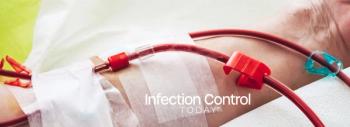
How to Protect Infection Preventionists’ Mental and Physical Wellbeing From COVID-19 Burnout
Bernadette Mazurek Melnyk, PhD, and her colleagues examined how COVID-19 affected infection preventionists’ mental and physical health, and in an exclusive interview, she discusses how facilities and IPs themselves can mitigate burnout.
Without infection preventionists (IPs), the COVID-19 pandemic would have been far worse and lasted far longer. But at what cost to the IPs? To address the impact of COVID-19 on IPs’ mental and physical welfare, Bernadette Mazurek Melnyk, PhD, APRN-CNP, FAANP, FNAP, FAAN, chief wellness officer and College of Nursing dean at The Ohio State University, and lead author on a study recently published in the American Journal of Infection Control spoke with Infection Control Today® (ICT®).
To clarify, ICT® asked Melnyk what definition of “burnout" is: “Burnout is a state where people are physically or mentally exhausted; they begin to get somewhat cynical about work, and begin to disengage. All the studies that I've done on clinician burnout, if clinicians are burned out, they make more medical errors. So it really does negatively impact health care quality and safety.”
In the exclusive interview, Melnyk describes the study’s recommendations for facilities to help their employees to fight burnout. She also promotes for health care workers to take care of themselves to fight against burnout.
“Professionals do a great job caring for everybody else. But they often don't prioritize their own self-care. So I tell everybody, 1, you’ve got to advocate for system change because those system issues cause so much burnout. But [2] you also need to build your own resiliency skills because we know people who are more resilient are more protected against physical and mental health problems.”
Across the country at O’Connor Hospital, Santa Clara Valley Health System in San Jose, California, the infection prevention team was led by Priya Pandya-Orozco, MSN, RN, CIC, infection control manager. She told ICT® what she and her team did to prevent burnout at her facility.
“Our infection prevention team connected with our frontline teams and leaders as we rounded daily,” said Pandya-Orozco. “We audited PPE practices and served as subject matter experts for any questions that came up. I remember helping comfort staff who felt scared or were fearful of what COVID-19 could and did bring to the world. Sometimes when I sat and listened to their concerns; it was all that was needed to support them and let them know they were not alone. I am grateful for how our health system pulled together and was transparent with the rapid changes, and how we never faced the challenges alone.”
The title of the study is
Newsletter
Stay prepared and protected with Infection Control Today's newsletter, delivering essential updates, best practices, and expert insights for infection preventionists.




